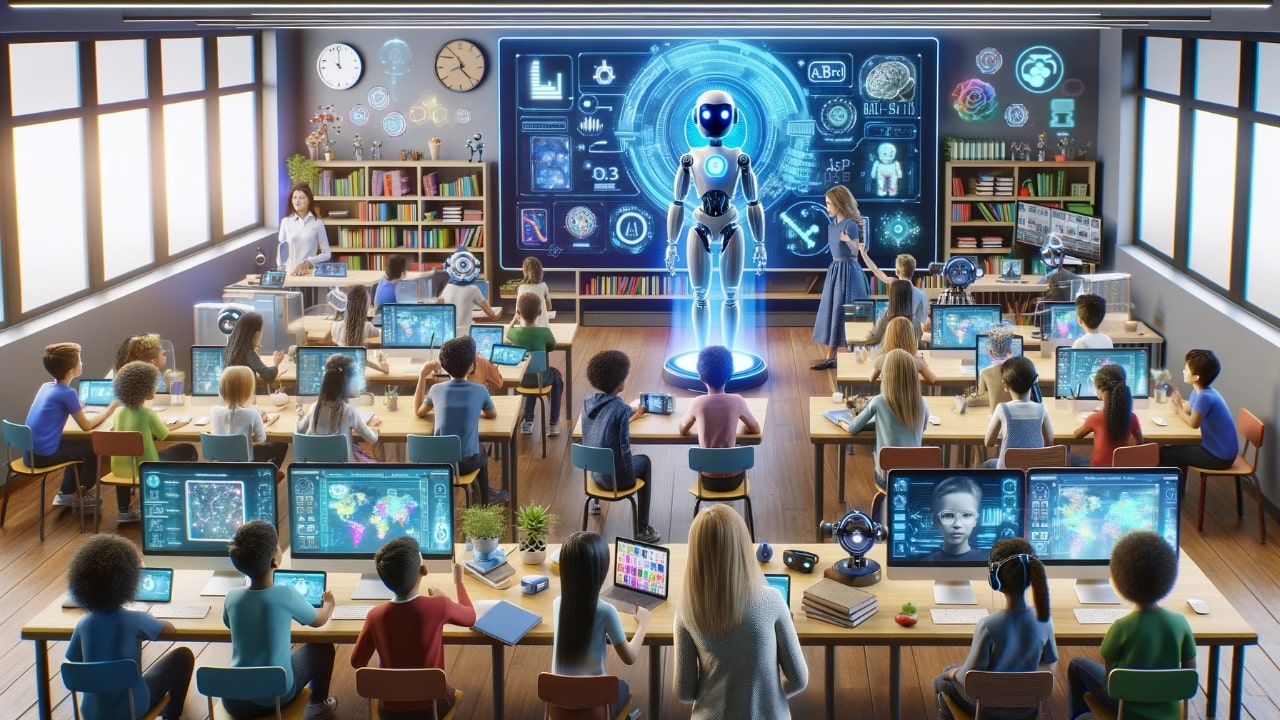Embracing AI in Education: 5 Innovative Approaches for Universities and Colleges in 2024
In recent years, the integration of artificial intelligence (AI) in educational settings has gained significant attention. Universities and colleges are increasingly exploring ways to leverage AI to enhance the learning experience and streamline administrative tasks. As we look ahead to 2024, the potential for AI in the classroom continues to expand, offering exciting opportunities for educational institutions. In this article, we will explore five ways universities and colleges can embrace AI in the classroom to improve learning outcomes and operational efficiency.
AI-Powered Personalized Learning
One of the most promising applications of AI in education is personalized learning. By harnessing AI algorithms, universities and colleges can create personalized learning experiences tailored to individual student needs. In 2024, we can expect to see educational institutions implementing AI-powered platforms that analyze student behaviors, learning styles, and performance data to deliver customized learning materials and adaptive assessments. This approach not only fosters student engagement but also enables educators to provide targeted support to students who may require additional assistance. With AI in education, the future of learning becomes more dynamic and efficient, empowering students to reach their full potential.
Virtual Teaching Assistants and Chatbots
In the near future, educational institutions are preparing to embrace the use of virtual teaching assistants and chatbots to enrich the overall learning journey. These innovative tools, of AI in education, have the potential to revolutionize communication, offer immediate assistance for frequently asked questions, and provide tailored guidance to students. Virtual teaching assistants will play a crucial role in supporting professors by automating administrative tasks, evaluating assignments, and delivering real-time feedback to students. Moreover, chatbots can be seamlessly integrated into learning management systems, ensuring round-the-clock support by addressing student inquiries and guiding them towards relevant educational resources.
Predictive Analytics for Student Success
AI-driven predictive analytics holds immense potential in helping universities and colleges identify students who may be at risk of falling behind or dropping out. By analyzing various data points such as academic performance, attendance, and engagement metrics, predictive analytics can alert educators to intervene and provide targeted support to students who are struggling. In 2024, educational institutions are likely to invest in AI tools that enable them to proactively address student retention and success, ultimately improving graduation rates and overall student satisfaction.
Smart Campus Infrastructure
AI in education is set to revolutionize universities and colleges, transforming campuses into smart and efficient environments. By 2024, we can expect the integration of AI-powered systems in various aspects of campus operations, including energy management, security, and facility operations. Here’s how AI will make a difference:
- Energy optimization: With AI, campuses can optimize energy usage in buildings by analyzing occupancy patterns and making adjustments to lighting, heating, and cooling systems accordingly. This ensures efficient energy consumption and reduces wastage.
- Enhanced security: AI-driven security systems will be deployed to enhance campus safety. These systems can detect anomalies and potential threats in real time, allowing for immediate response and prevention of security breaches.
- Smarter facility operations: AI will enable educational institutions to streamline facility operations. By leveraging AI-powered systems, campuses can automate processes, monitor equipment performance, and proactively address maintenance needs, leading to improved efficiency and cost savings.
- By embracing AI in the campus environment, educational institutions can achieve greater sustainability, safety, and cost efficiency. AI’s capabilities will empower campuses to adapt to modernization and provide an enhanced learning experience for students and staff.
Enhanced Administrative Processes with AI in education
In the realm of education, AI has the potential to transform administrative processes. With the integration of AI-powered platforms, universities and colleges are poised to automate routine tasks like admissions processing, student record management, and financial aid distribution. These systems have the ability to streamline workflows, minimize manual errors, and allow staff to concentrate on more strategic initiatives. Moreover, AI can analyze extensive datasets to provide valuable insights for resource allocation, budget planning, and institutional decision-making, empowering educational leaders with actionable intelligence. AI in education is set to revolutionize administrative processes and empower educational institutions.
In conclusion, the potential for AI in the education sector is vast, and universities and colleges are poised to embrace AI in the classroom in 2024. By leveraging AI-powered personalized learning, virtual teaching assistants, predictive analytics, smart campus infrastructure, and enhanced administrative processes, educational institutions can create a more dynamic, efficient, and student-centric learning environment. As AI continues to evolve, its integration into education will undoubtedly shape the future of learning and pave the way for innovative approaches to teaching, learning, and campus management.
As you continue your journey in exploring the impact of AI in education, we invite you to discover our other thought-provoking blogs that delve into the realm of digital marketing. Happy exploring!
